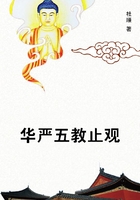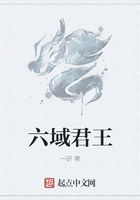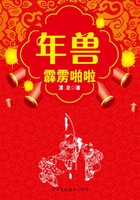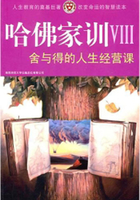Most of those who now pass as Liberals, are Tories of a new type. This is a paradox which I propose to justify. That I may justify it, I must first point out what the two political parties originally were; and I must then ask the reader to bear with me while I remind him of facts he is familiar with, that I may impress on him the intrinsic natures of Toryism and Liberalism properly so called.
Dating back to an earlier period than their names, the two political parties at first stood respectively for two opposed types of social organization, broadly distinguishable as the militant and the industrial -- types which are characterized, the one by the regime of status, almost universal in ancient days, and the other by the regime of contract, which has become general in modern days, chiefly among the Western nations, and especially among ourselves and the Americans. If, instead of using the word "co-operation" in a limited sense, we use it in its widest sense, as signifying the combined activities of citizens under whatever system of regulation; then these two are definable as the system of compulsory co-operation and the system of voluntary co-operation. The typical structure of the one we see in an army formed of conscripts, in which the units in their several grades have to fulfil commands under pain of death, and receive food and clothing and pay, arbitrarily apportioned; while the typical structure of the other we see in a body of producers or distributors, who severally agree to specified payments in return for specified services, and may at will, after due notice, leave the organization if they do not like it.
During social evolution in England, the distinction between these two fundamentally-opposed forms of co-operation, made its appearance gradually; but long before the names Tory and Whig came into use, the parties were becoming traceable, and their connexions with militancy and industrialism respectively, were vaguely shown. The truth is familiar that, here as elsewhere, it was habitually by town-populations, formed of workers and traders accustomed to co-operate under contract, that resistances were made to that coercive rule which characterizes co-operation under status. While, conversely, cooperation under status, arising from, and adjusted to, chronic warfare, was supported in rural districts, originally peopled by military chiefs and their dependents, where the primitive ideas and traditions survived.
Moreover, this contrast in political leanings, shown before Whig and Tory principles became clearly distinguished, continued to be shown afterwards. At the period of the Revolution, "while the villages and smaller towns were monopolized by Tories, the larger cities, the manufacturing districts, and the ports of commerce, formed the strongholds of the Whigs." And that, spite of exceptions, the like general relation still exists, needs no proving.
Such were the natures of the two parties as indicated by their origins. Observe, now, how their natures were indicated by their early doctrines and deeds. Whiggism began with resistance to Charles II and his cabal, in their efforts to re-establish unchecked monarchical power. The Whigs "regarded the monarchy as a civil institution, established by the nation for the benefit of all its members;" while with the Tories "the monarch was the delegate of heaven." And these doctrines involved the beliefs, the one that subjection of citizen to ruler was conditional, and the other that it was unconditional. Describing Whig and Tory as conceived at the end of the seventeenth century, some fifty years before he wrote his Dissertation on Parties, Bolingbroke says: --"The power and majesty of the people, an original contract, the authority and independency of Parliaments, liberty, resistance, exclusion, abdication, deposition; these were ideas associated, at that time, to the idea of a Whig, and supposed by every Whig to be incommunicable, and inconsistent with the idea of a Tory.
"Divine, hereditary, indefeasible right, lineal succession, passive-obedience, prerogative, non-resistance, slavery, nay, and sometimes popery too, were associated in many minds to the idea of a Tory, and deemed incommunicable and inconsistent, in the same manner, with the idea of a Whig." Dissertation on Parties, p. 5 [1735, p. 4].
And if we compare these descriptions, we see that in the one party there was a desire to resist and decrease the coercive power of the ruler over the subject, and in the other party to maintain or increase his coercive power. This distinction in their aims -- a distinction which transcends in meaning and importance all other political distinctions -- was displayed in their early doings. Whig principles were exemplified in the Habeas Corpus Act, and in the measure by which judges were made independent of the Crown; in defeat of the Non-Resisting Test Bill, which proposed for legislators and officials a compulsory oath that they would in no case resist the king by arms; and, later, they were exemplified in the Bill of rights, framed to secure subjects against monarchical aggressions. These Acts had the same intrinsic nature. The principle of compulsory co-operation throughout social life was weakened by them, and the principle of voluntary co-operation strengthened. That at a subsequent period the policy of the party had the same general tendency, is well shown by a remark of Mr Green concerning the period of Whig power after the death of Anne: --"Before the fifty years of their rule had passed, Englishmen had forgotten that it was possible to persecute for differences of religion, or to put down the liberty of the press, or to tamper with the administration of justice, or to rule without a Parliament."Short History, p. 705.
[J. R. Green, Short History of the English People, London, 1874.
The (later) editions which I have been able to consult have 'opinion' in place of 'religion'.]

